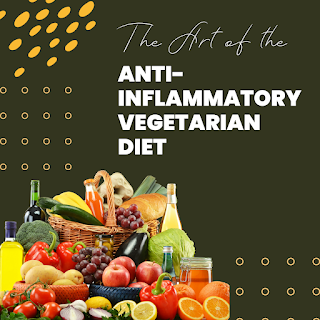The Art of Embracing an Anti-Inflammatory Vegetarian Diet
The Art of Embracing an Anti-Inflammatory Vegetarian Diet
In recent years, the importance of following an anti-inflammatory diet has gained widespread recognition. By opting for a vegetarian approach, individuals can nourish their bodies while reducing inflammation naturally. In this article, we will explore the principles and guidelines for adopting an anti-inflammatory vegetarian diet and provide valuable tips for incorporating it into your every-day life.
Inflammation is the body's natural response to injury or illness. However, chronic inflammation can lead to various health issues, including heart disease, arthritis, and even certain cancers. An anti-inflammatory diet focuses on consuming foods that help combat inflammation, promoting overall well-being. By opting for a vegetarian diet, individuals can benefit from a wide array of plant-based foods that possess powerful anti-inflammatory properties.
Key Principles of an Anti-Inflammatory Vegetarian Diet:
- Emphasize Whole Foods: Prioritize whole grains, legumes, fruits, vegetables, nuts, and seeds. These foods are rich in antioxidants, vitamins, minerals, and fiber, which help reduce inflammation.
- Include Healthy Fats: Incorporate sources of healthy fats, such as avocados, olive oil, and nuts. These fats provide essential fatty acids, including omega-3s, which possess potent anti-inflammatory properties.
- Opt for Plant-Based Proteins: Choose plant-based protein sources like beans, lentils, tofu, tempeh, and quinoa. These options are not only nutritious but also lower in saturated fats compared to animal-based proteins.
Tips for an Anti-Inflammatory Vegetarian Diet:
- Colorful Plate: Aim for a variety of vibrant fruits and vegetables to ensure a broad range of antioxidants and phytochemicals in your diet.
- Spices and Herbs: Include turmeric, ginger, garlic, cinnamon, and other spices known for their anti-inflammatory effects to enhance flavor and nutritional value.
- Omega-3 Boost: Incorporate flaxseeds, chia seeds, hemp seeds, and walnuts to enhance your intake of omega-3 fatty acids.
- Choose Whole Grains: Opt for whole grains like quinoa, brown rice, and whole wheat bread, which are rich in fiber and essential nutrients.
- Minimize Processed Foods: Limit processed snacks, sugary beverages, and refined carbohydrates, as these can contribute to inflammation.
- Stay Hydrated: Drink plenty of water throughout the day to support overall health and maintain optimal hydration levels.
Transitioning to an anti-inflammatory vegetarian diet is a positive step towards promoting a healthier lifestyle. By focusing on whole, plant-based foods and incorporating key principles such as consuming healthy fats and plant-based proteins, individuals can reduce inflammation and improve their overall well-being. Embrace the art of this nourishing approach and reap the benefits of a vibrant, anti-inflammatory vegetarian diet.



Comments
Post a Comment